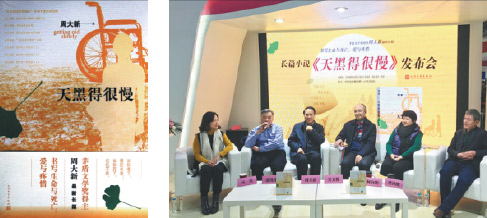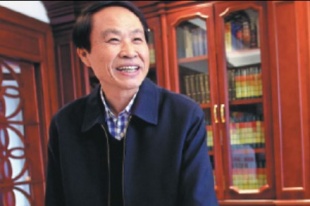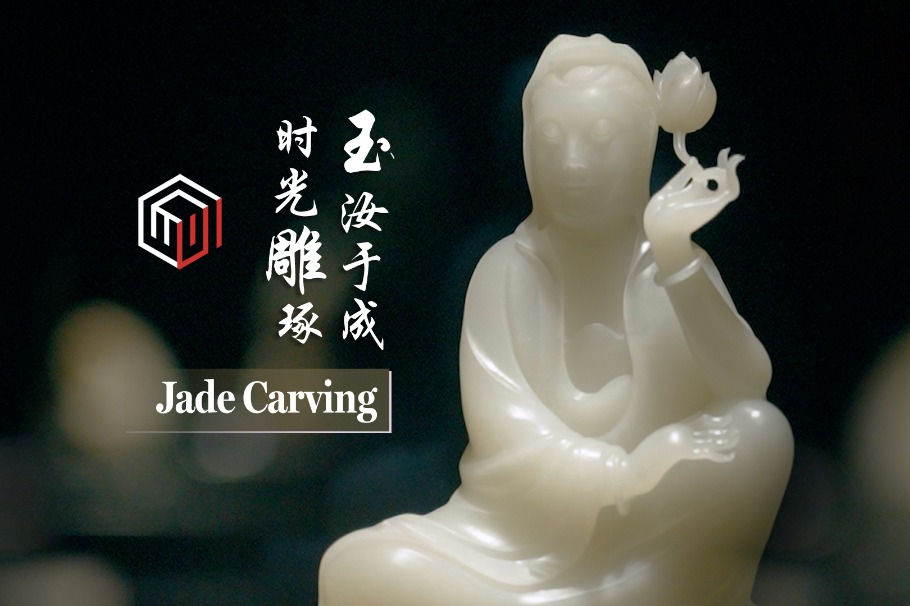New focus on old age


Official data show that by the end of 2016, China had 230 million people older than 60, accounting for 16.7 percent of the total population. Of that number, about 150 million are older than 65.
"I witnessed the changes of my mother from the age of 90 to 92. She gradually seemed to recognize nobody close to her. And she could not recognize me," Zhou says.
The effects of Alzheimer's disease are often not spotted by caretakers in the early stages.
Zhou says he himself was struck by sudden hearing loss, as his protagonist experienced.
In the book, other issues like choosing wheelchairs, getting married, and seeking medicines for longevity are also featured, making it more like an "encyclopedia on senility".
Zhou says his pace of life has slowed down over the years due to personal setbacks.
In 2008, when he won the prestigious Mao Dun Literature Prize for View of the Lake and Hill about a rural girl, he lost his only son at the age of 29 to brain cancer.
"Then, I felt incapable of doing anything, seeing my son standing in front of me anywhere I went," he says.
"I decided to write something, but I soon found that re-telling the experience was even more heart-breaking."
He spent three years on his seventh novel Requiem, a dialogue between a father and a son who has passed away.
"Sometimes, I could only write a couple of hundreds words a day," Zhou says.
Commenting on Zhou's work, literary critic Li Jingze says: "Zhou's writing has kept up with his life, which is something easier said than done. He's not only creating novels, he's also exploring life's truths."
As for Zhou, he says: "Stepping out of middle age, sometimes you just feel lonely and full of pain, with people who surrounded you gradually scattered away. Actually, it's not only middle age. Every phase of life has its own pains and struggles."
Speaking about the response of publishers, he says: "Many were cautious about a book on growing old."
Ying Hong, an editor with the People's Literature Publishing House that publishes Zhou's works, says the novel is a prompt and in-depth look at the aging problem in the country.
Also, through the narrator, Zhou looks at migration workers in cities; and through Xiao's daughter, and her failed marriage, he focuses on patients suffering from depression.
Zhou even quoted Israeli bestselling writer Yuval Harari and his Homo Deus: A Brief History of Tomorrow in the book.
In Zhou's living room, there's a calligraphy work of his motto that reads: "Born in a farmer's house, grew up in the fields, I still cherish the memory of hard labor, and remember where my roots lie."
Zhou was born in 1952 into a rural family in Dengzhou, Henan province.
After completing high school, he joined the People's Liberation Army in 1970.
"I experienced famine at 8. I just wanted to escape the poverty and I knew I would get fed in the army," he says.
Zhou, who graduated from Xi'an Institute of Politics in 1985, started to publish his literary works in 1979.
So far, the author whose books have been translated into French, German, Spanish and other languages, has written 6 million words.
His novella The Fragrant Oil Mill by the Lake of Scented Souls has been turned into a movie - Woman Sesame Oil Maker - and won the Golden Bear prize at the 1993 Berlin International Film Festival.
As for literary figures who inspire him, he says: "It is Russian writer Leo Tolstoy who leads me. His books show how love can support many things."
Critic Liang Hongying says: "He's hopeful, and he's sending out positive messages."
However, Zhou says: "I have my sense of mission and I'm working to boost the national spirit.
"Getting old is like the day's getting dark in the summer, slowly. Every heart needs to be lightened up by love and care."





































